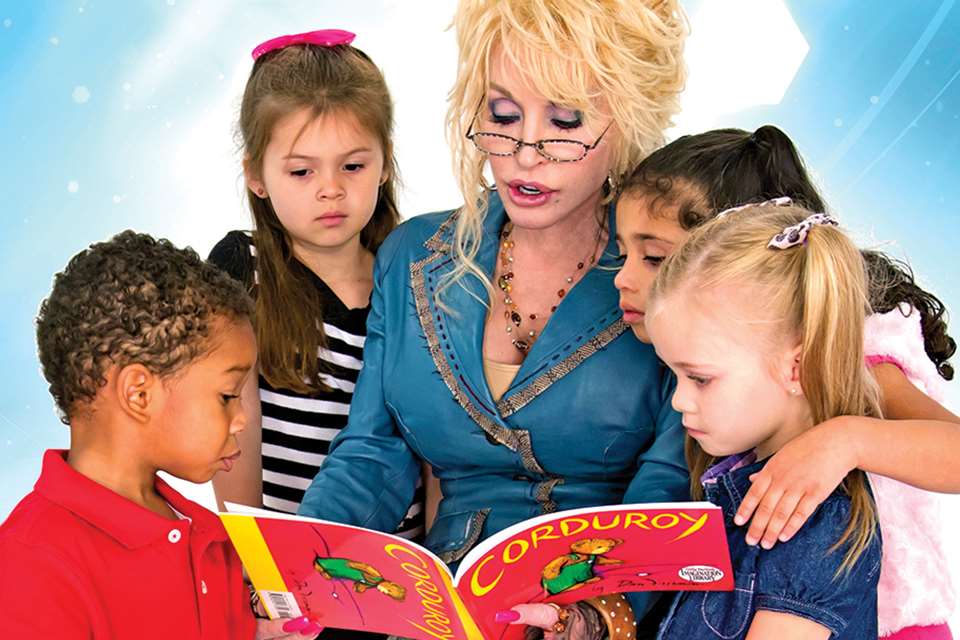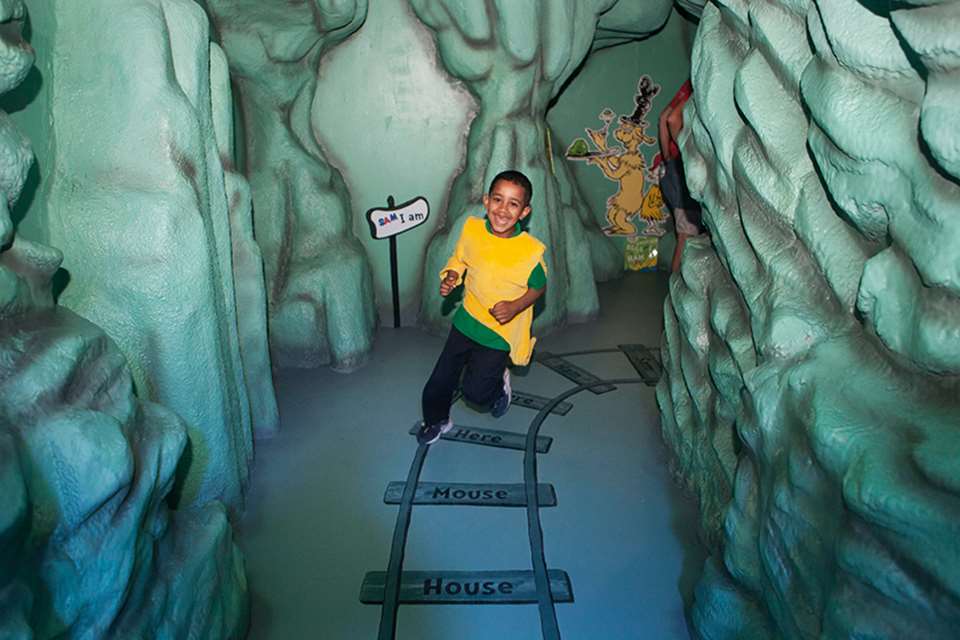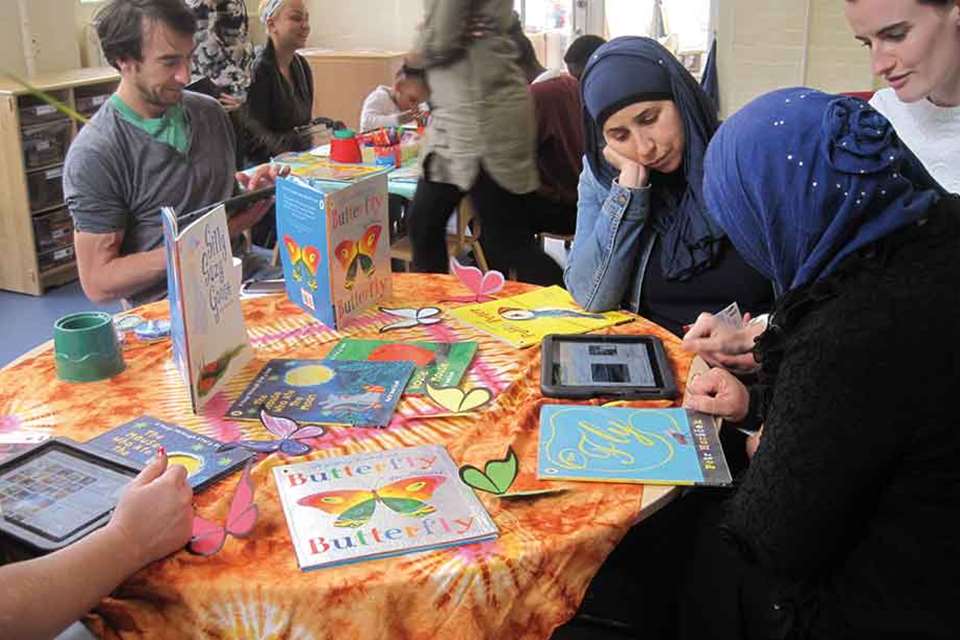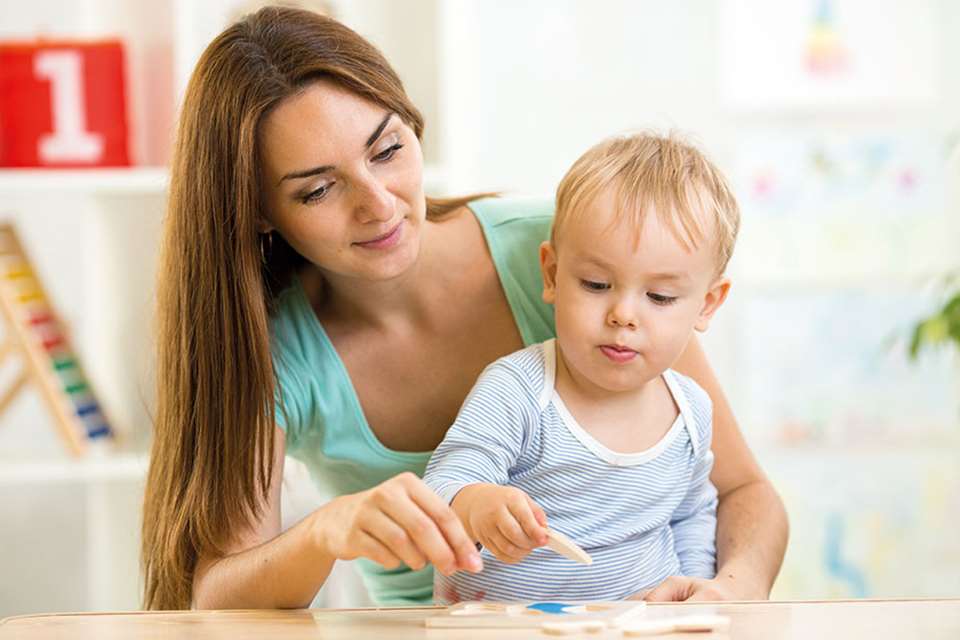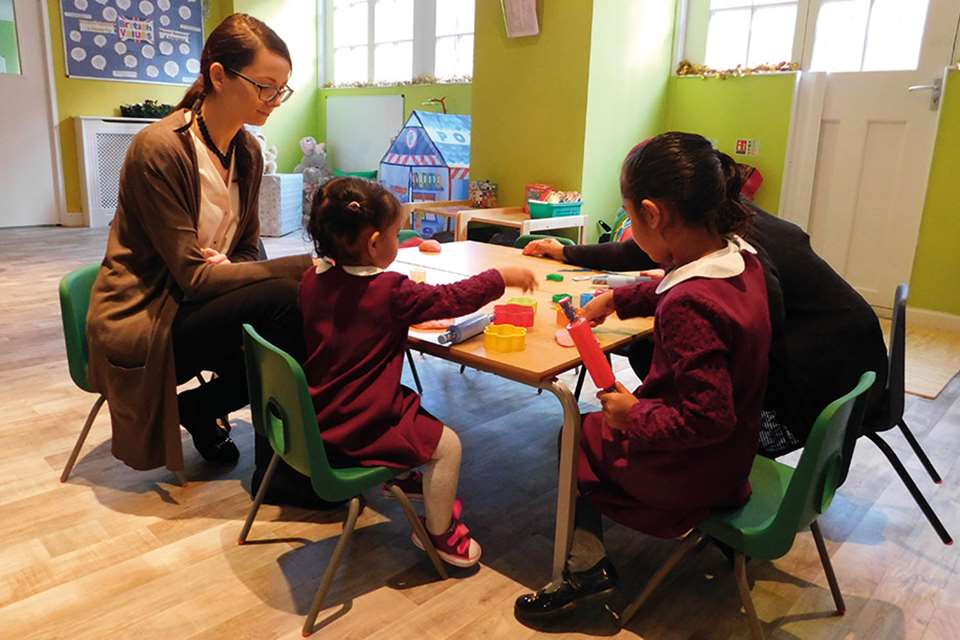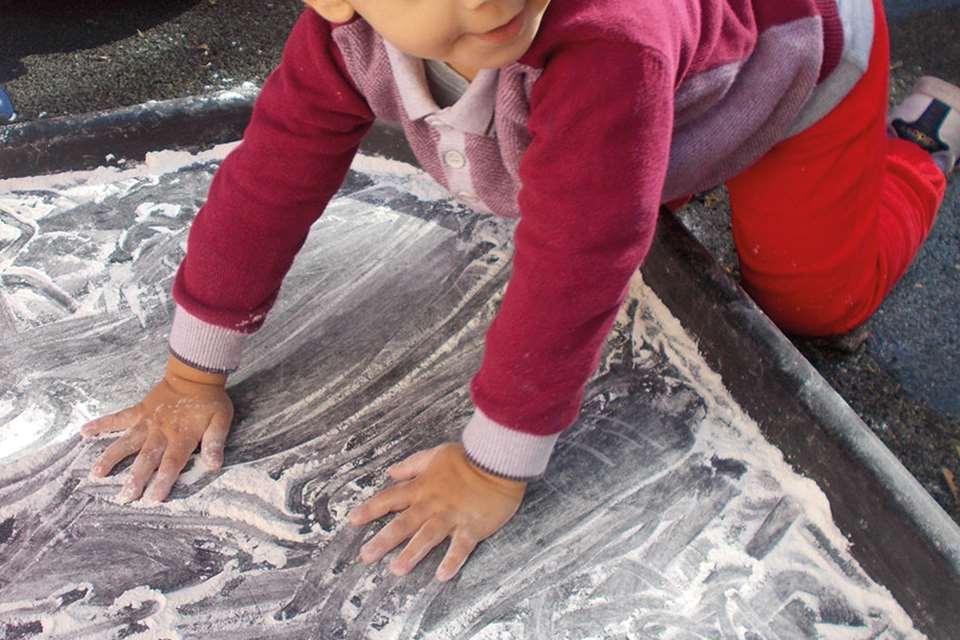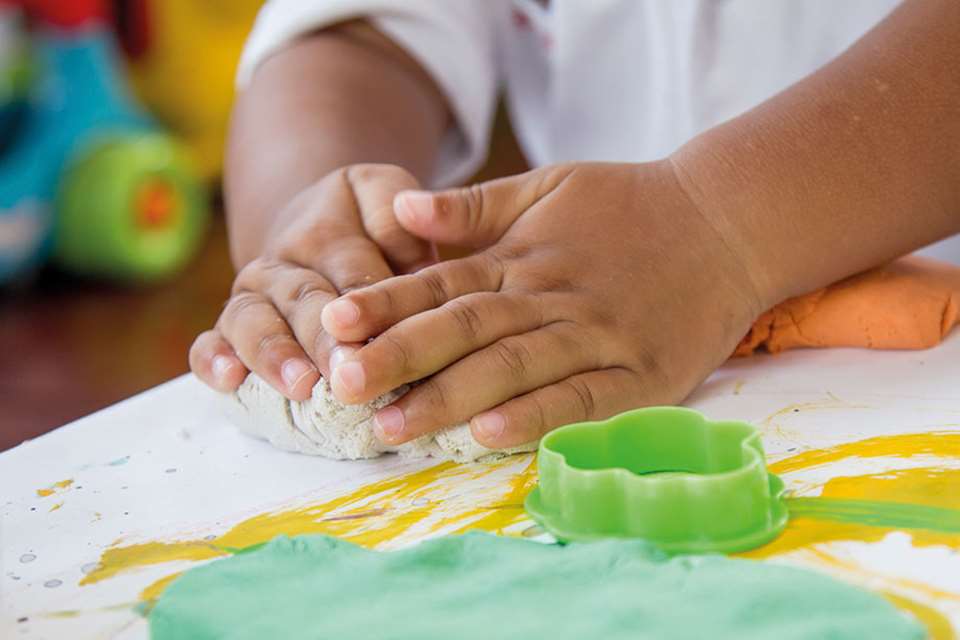Positive Relationships: Working with Parents - REAL progress
Laura Gregory
Monday, August 21, 2017
A home learning early literacy project in Merseyside has improved communication and language development for those children and parents in need of extra support. By Laura Gregory

In Knowsley, there have long been clear trends of children across the borough needing support with their communication and language development. However, in recent years, a new need has emerged – that of supporting early literacy. To build on existing support and address this new trend, Knowsley launched a Raising Early Achievement in Literacy (REAL) project, which has brought significant benefits to pre-school children through home learning.
The decline in effective support of children’s early literacy within the borough stems from the 2012 revision of the EYFS, which split the ‘curriculum’ into three Prime and four Specific areas of learning.
As a result, according to local settings, support for the Specific area of Literacy has waned as practitioners have focused increasingly on the Prime area of Communication and Language. What we wanted to remind parents, and practitioners, through the REAL project was the importance of sharing books and effective communication and language development in helping a child to become literate.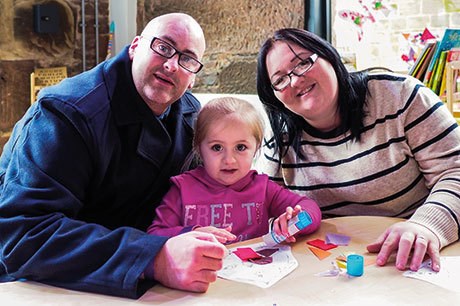
GETTING ‘REAL’
REAL is a home learning project, led by the Early Childhood Unit at the National Children’s Bureau (NCB) and built upon the evidence of Professors Cathy Nutbrown and Peter Hannon of the University of Sheffield. Its four strands are Books, Oral Language, Early Writing and Environmental Print.
It is also based on findings from the EPPE research, which reinforced the importance of home learning and noted that ‘what parents do is more important than who parents are’. The play activities making the greatest impact on a child’s learning were, it found, reading and sharing books, going to the library, going on visits, playing with letters and numbers, signing songs and rhymes, drawing and painting and playing with friends.
Central to the REAL approach is the Opportunity, Recognition, Interaction and Modelling (ORIM) framework. This refers to the four main ways in which parents can help their child’s literacy development:
- Providing opportunities for literacy.
- Recognising and valuing their child’s achievements.
- Interacting with their child in real-life literacy events.
- Modelling being a user of literacy by, for example, writing instructions or reading a book.
The framework meant that the parents taking part in the Knowsley project were supported in how to engage in high-quality interactions with their child, recognise their child’s interests and achievements and model activities.
KNOWSLEY PROJECT
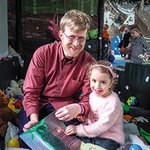 Knowsley’s REAL Project took place between September 2016 and March 2017, during which time each family could have two to three home visits and attend three literacy events.
Knowsley’s REAL Project took place between September 2016 and March 2017, during which time each family could have two to three home visits and attend three literacy events.
At the outset, training was provided for staff from nine PVI settings and five children’s centresin the north and south of the borough. Each setting was then allocated a children’s centre practitioner and together staff planned joint home visits to each of the families involved in the project.
To establish its effectiveness, the settings involved collated evidence on 42 children in each of the four strands of the programme. This information was then fed back to the NCB to form part of a report for the Department for Education.
Home visits
Each home visit was linked to one of the four REAL strands, when practitioners would:
- talk to parents about how they could support aspects of their child’s reading and writing at home
- offer tips for activities that parents could do for little or no cost and as part of their everyday routine – for example, writing shopping lists and birthday cards, or reading and talking about road and shop signs when they were out and about
- model an activity, such as reading a story and using a story sack, or making playdough and then making marks in it. Activities always took account of children’s interests, so on one visit to a child with an interest in tools and construction, the practitioner brought along printed signs that you would see on a building site. They then cut out the signs together and stuck them in a scrap book while talking about the letters and symbols that they could see
- leave resources, and handouts, providing activity ideas for what the family could do next – for example, a book with a puppet or a small mark-making pack with pencils and paper.
Literacy events
In January, all the practitioners involved in the project met to discuss progress, any learning to be taken forward and the literacy events.
The children’s centres then held two literacy events in the southern locality and two in the northern locality, followed by a final joint literacy event at the Story Barn in Calderstones Park, Liverpool. Themes for the events were Under The Sea and Safari.
Each event started with a short circle time, when we read a story and talked to the parents about the aim of the event and how the activities that we had set out would benefit their children.
Our Under the Sea event included activities such as fishing for letters, mark-making in malleable materials, small-world areas and themed cosy spaces where parents could read with their children.
For our Safari event, we organised a print hunt, where children had to find signs such as ‘beware of the lions’.
We also provided large and small safari animals for the children to decorate, jungle-themed interest trays, sand mark-making and jungle den reading areas.
At each event, families were given resources to take home with them, such as instructions for a sign hunt, a song sheet and book. Some nurseries decided to organise their own, smaller, literacy event – a stay-and-play session with activities such as biscuit decorating and using story sacks.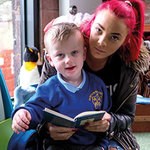
CHALLENGES AND BENEFITS
Trying to get parents on board with the project and ensuring we were supporting the right families was difficult. However, perhaps the biggest challenge was finding times for home visits that suited the families, the nursery practitioner and the children’s centre practitioner.
It was also a challenge to keep families involved.
What really helped overcome these challenges was the dedication and commitment of the practitioners involved in the projects.
All groups of children who took part demonstrated an improvement in their oral language and recognition of environmental print.
The feedback received also suggested that children increased the amount of time that they spent mark-making and sharing books at home (see boxes).
Settings reported that being involved in the REAL project enhanced their relationship not only with the children but also brought huge benefits to their partnership with parents.
Being involved and influencing the home learning environment led to a better understanding of the children they work with. Practitioners involved also reported a boost in their confidence in supporting literacy within the setting and with their families.
Helen Wheeler at the National Children’s Bureau stated, ‘You can see really good shifts across all measures – which is remarkable with such a short input.’
PARENT QUESTIONNAIRES
Percentage of parents reporting that the project helped them to support their child in:
- learning about books a great deal – 100 per cent
- joining in with songs and rhymes – 100 per cent
- making marks – 82 per cent
- using environmental print – 91 per cent
- now feeling very confident when talking about their child’s development – 82 per cent
- now doing new things to help their child learn at home – 91 per cent.
REAL FEEDBACK
Parents’ comments:
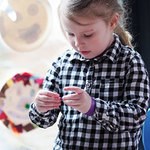 ‘Most useful things are: materials given during home visits and discussion about what to do; visit to centres and watching staff interact with children and how they introduce and facilitate sessions.’
‘Most useful things are: materials given during home visits and discussion about what to do; visit to centres and watching staff interact with children and how they introduce and facilitate sessions.’
‘The project really helps parents to become aware of teachable moments in everyday situations, anywhere, any place.’
‘I’ve never been a big reader myself and wasn’t sure whether reading to my daughter was something I needed to be doing. After attending the special sessions at my local children’s centre, I now know how important it is and also what a lovely way it is to spend quality one-to-one time with my daughter.’
Laura Gregory is senior children's development and learning officer, South Locality Children's Centres, Knowsley


